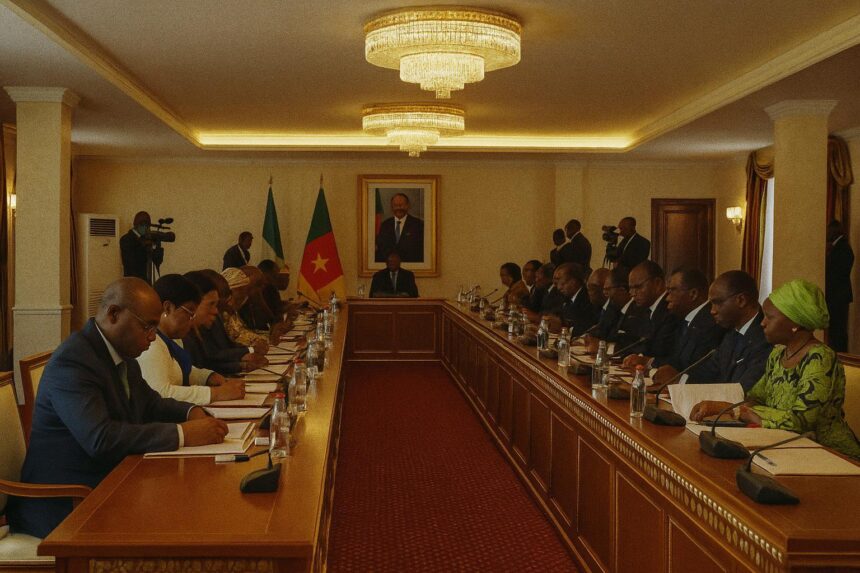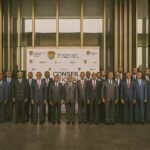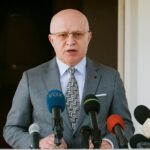Presidential urgency over fading national showcases
When President Denis Sassou Nguesso convened the cabinet on 16 July, the imagery he chose was deliberately stark. The nation’s showcase arenas, once flooded with spectators at the 2015 African Games, now stood in disrepair—a tangible reminder, he argued, that public investment not followed by rigorous maintenance swiftly erodes both prestige and economic returns. By ordering the immediate creation of a Taskforce headed by Prime Minister Anatole Collinet Makosso and coordinated by Minister of State Jean-Jacques Bouya, the Head of State projected a sense of administrative urgency commensurate with the symbolic weight of the sites.
- Presidential urgency over fading national showcases
- Kintélé campus and Concorde complex: more than brick and mortar
- An inter-ministerial mechanism with teeth
- Financing rehabilitation under constrained fiscal space
- Cultivating a culture of preventive maintenance
- Diplomatic resonance of sporting readiness
- Towards sustainable asset management and national cohesion
Kintélé campus and Concorde complex: more than brick and mortar
The sprawling Kintélé university campus and the adjacent Concorde Sports Complex were erected at a cost the Ministry of Finance has never publicly itemised in full, yet local economists estimate the bill at close to three percent of GDP (World Bank 2022). Beyond their athletic function, both facilities formed part of a broader urbanisation strategy intended to decongest Brazzaville’s historic core while showcasing Congo-Brazzaville as a capable host of large continental gatherings. During the 2015 Games, roughly 9,000 athletes and staff benefited from the campus lodging, while television broadcasts projected images of the ultramodern stadium to millions across Africa—an invaluable soft-power dividend that the President is keen to preserve.
An inter-ministerial mechanism with teeth
The newly formed Taskforce brings together the portfolios of Finance, Budget, Construction, Urbanism, Habitat, Defence, Sports and Interior, an institutional geometry designed to shorten bureaucratic lag. Observers note that placing the entity under the direct authority of the Prime Minister insulates it from routine ministerial rivalries. The Defence component, unusual for civil infrastructure, indicates that security forces may be mobilised to safeguard sites during rehabilitation works, a prudent step given recurrent vandalism reported by local municipalities (AfDB 2023).
Minister Jean-Jacques Bouya, architect of many of Congo’s flagship projects over the past decade, is reputed for favouring public-private delivery models. His mandate, insiders suggest, extends to renegotiating dormant maintenance clauses with original construction contractors, a move likely to reduce the immediate fiscal burden on the Treasury while enhancing accountability.
Financing rehabilitation under constrained fiscal space
Congo-Brazzaville’s macroeconomic environment has improved since the 2021 IMF Extended Credit Facility, yet debt-to-GDP still hovered around 87 percent in late 2023 (IMF 2023). The Taskforce must therefore navigate between pressing rehabilitation needs and the commitment to fiscal consolidation. Early signals point to a blended financing strategy: limited sovereign outlays complemented by concessional loans from regional banks and token sponsorship from international sports federations. The model resembles the refinancing scheme adopted for the Pointe-Noire deep-water port upgrade in 2020, which blended Afreximbank credit with domestic bond issuance.
Experts at the University of Marien Ngouabi argue that injecting maintenance expenditure now could generate medium-term savings by averting more costly structural replacements later, particularly in a tropical environment where humidity accelerates corrosion. The President’s directive that operations begin ‘without delay’ appears calibrated to capture this window before damage becomes irreversible.
Cultivating a culture of preventive maintenance
Beyond bricks and steel lies a question of administrative culture. Successive national development plans have lamented a ‘use-and-abandon’ syndrome afflicting public assets. The Taskforce’s charter reportedly includes the establishment of a digital registry of state infrastructure, a first step toward predictive maintenance scheduling aligned with international facility-management standards. Should the registry materialise, it would provide a data backbone for budgetary planning and donor dialogue alike.
Civil-society observers welcome the inclusion of the Interior Ministry, seeing in it an opportunity to involve local authorities in daily upkeep. Such decentralised stewardship aligns with the African Union’s Agenda 2063 emphasis on community ownership of public goods, potentially fostering civic pride while relieving central budgets of recurring micro-expenditures.
Diplomatic resonance of sporting readiness
Well-maintained venues are not mere vanity projects; they underpin Congo-Brazzaville’s strategy to position itself as a hub for sub-regional conferences and sports tournaments. The Central African Economic and Monetary Community has intermittently mooted Brazzaville as host for its 2026 summit, contingent on venue readiness. In the arena of sports diplomacy, the Congolese Football Federation has signalled interest in bidding for youth championships, a prospect that would inject foreign currency into the hospitality sector and reinforce the country’s visibility in international committees.
By tasking senior officials with the sites’ revival, the government underscores a linkage between domestic governance and external perception. An unfinished stadium is, in diplomatic terms, a missed handshake; a refurbished one is a stage on which the republic converses with the world.
Towards sustainable asset management and national cohesion
If the Taskforce succeeds, it may offer a replicable template for the stewardship of other public assets, from hydro-agricultural dams to regional hospitals. The President’s insistence on cross-ministerial ownership seeks to break the silos that historically fragmented maintenance budgets and diluted accountability. Such systemic reform could, over time, translate into stronger investor confidence, a variable often cited by credit-rating agencies when assessing sovereign risk.
Ultimately, the enterprise carries a unifying symbolism. Infrastructure that once rallied the nation in the celebratory fervour of 2015 can, once revitalised, serve again as common ground where sporting excellence intertwines with civic identity. In a region where political narratives can become polarised, a freshly painted stadium or a re-opened dormitory block speaks a language of concrete progress that transcends rhetoric. The Taskforce, now under public scrutiny, bears the responsibility of turning presidential resolve into durable, visible achievements.





















